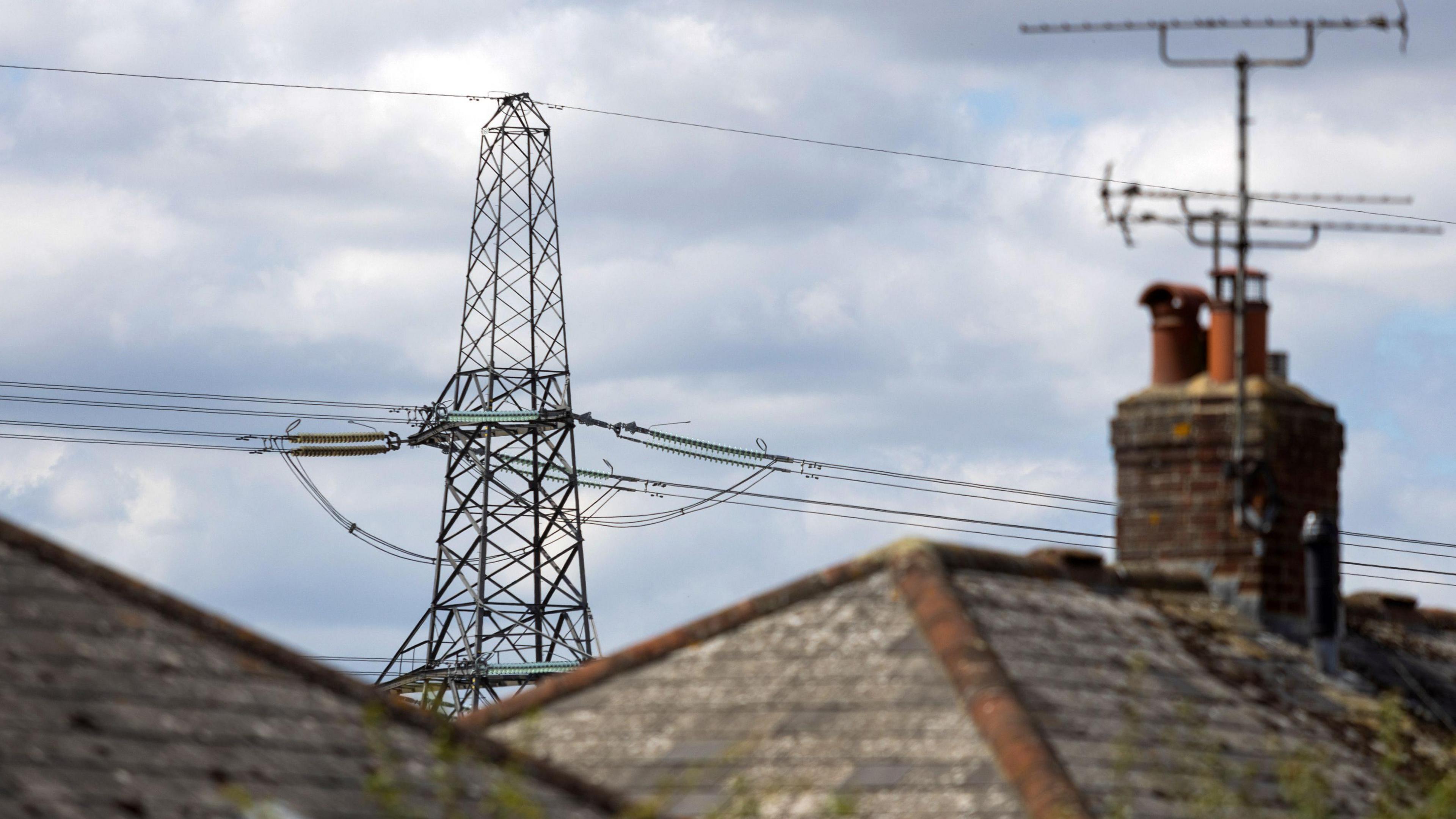Grid charge changes set to make going green easier
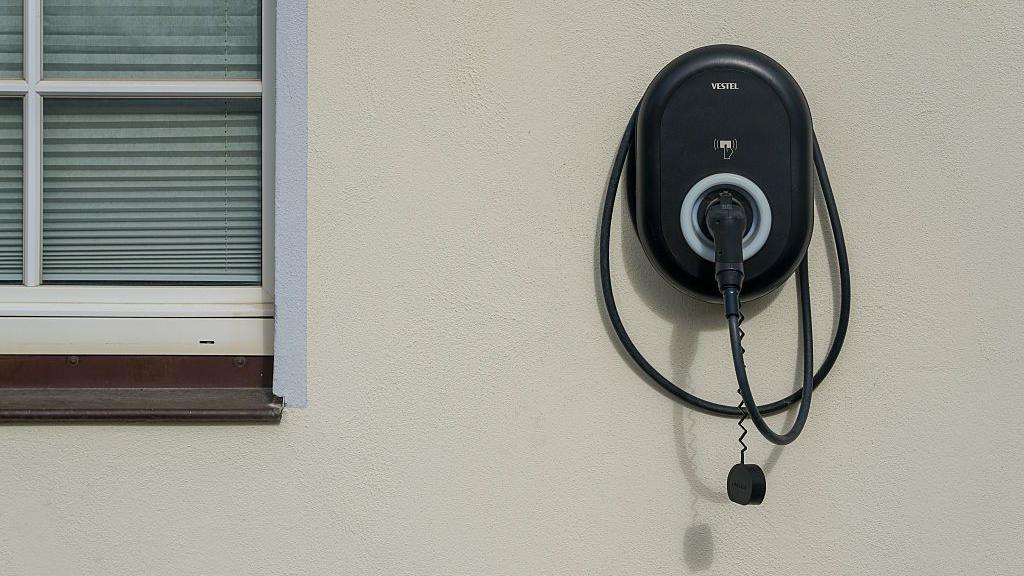
Under new rules, consumers and businesses will pay for the kit needed to connect their own property and any grid reinforcement will become a social charge
- Published
Adding green technology to homes and businesses in Northern Ireland should become easier, thanks to a change in how grid connections are charged.
Unlike the rest of the UK, things like adding an electric vehicle charger in Northern Ireland can lead to an individual consumer paying for a grid reinforcement to bolster local supply.
And businesses seeking to reduce their emissions by electrifying can be faced with enormous bills.
The Economy Minister Caoimhe Archibald said that was "unfair" and reduced competitiveness.
Now, consumers and businesses will pay for the kit needed to connect their own property and any grid reinforcement will become a social charge, spread over time and across users.
Stimulate competitiveness
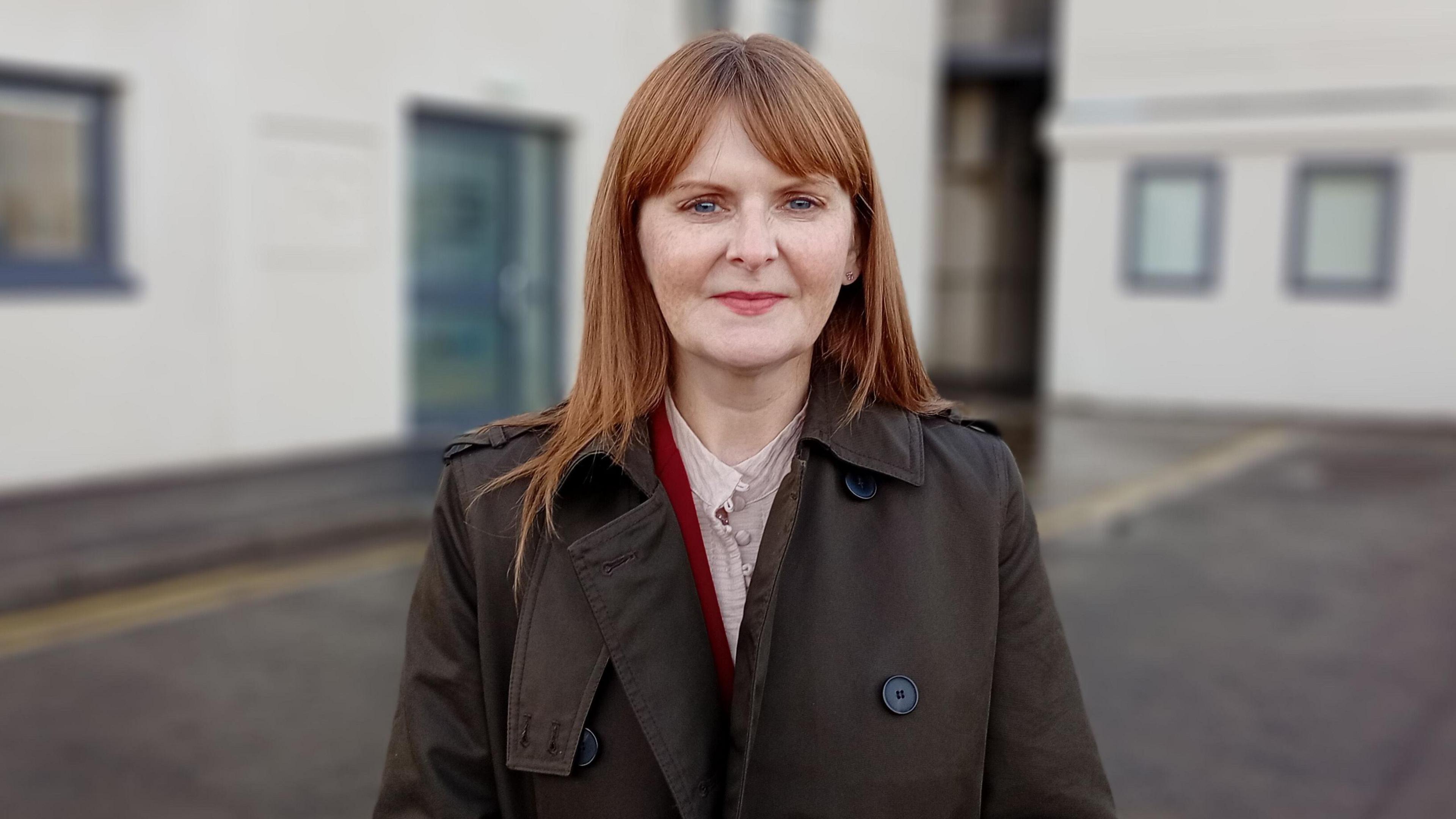
Economy Minister Caoimhe Archibald, pictured here during a visit to FP McCann, says the changes will improve regional balance
Industry as a sector has reduced emissions by two-thirds, external since 1990. Moving to electricity is a significant part of that reduction.
But Economy Minister Caoimhe Archibald said the current system had sometimes proved "prohibitive" for businesses seeking to decarbonise or even expand.
She said changing how the charge is applied would improve regional balance, as rural customers had often found themselves at a particular disadvantage.
"I think there won't be an elected representative from a rural area who will not have been lobbied on this issue.
"It impacts everyone from somebody building a house in a rural community to businesses.
"This change will mean that some people will be able to go ahead and make investments, and the sharing of the costs will make it much more fair."
The Sinn Féin minister added that it would also help with "the uptake of renewable energy technologies", like heat pumps and electric vehicle chargers both in homes and businesses.
Desire to 'go green'
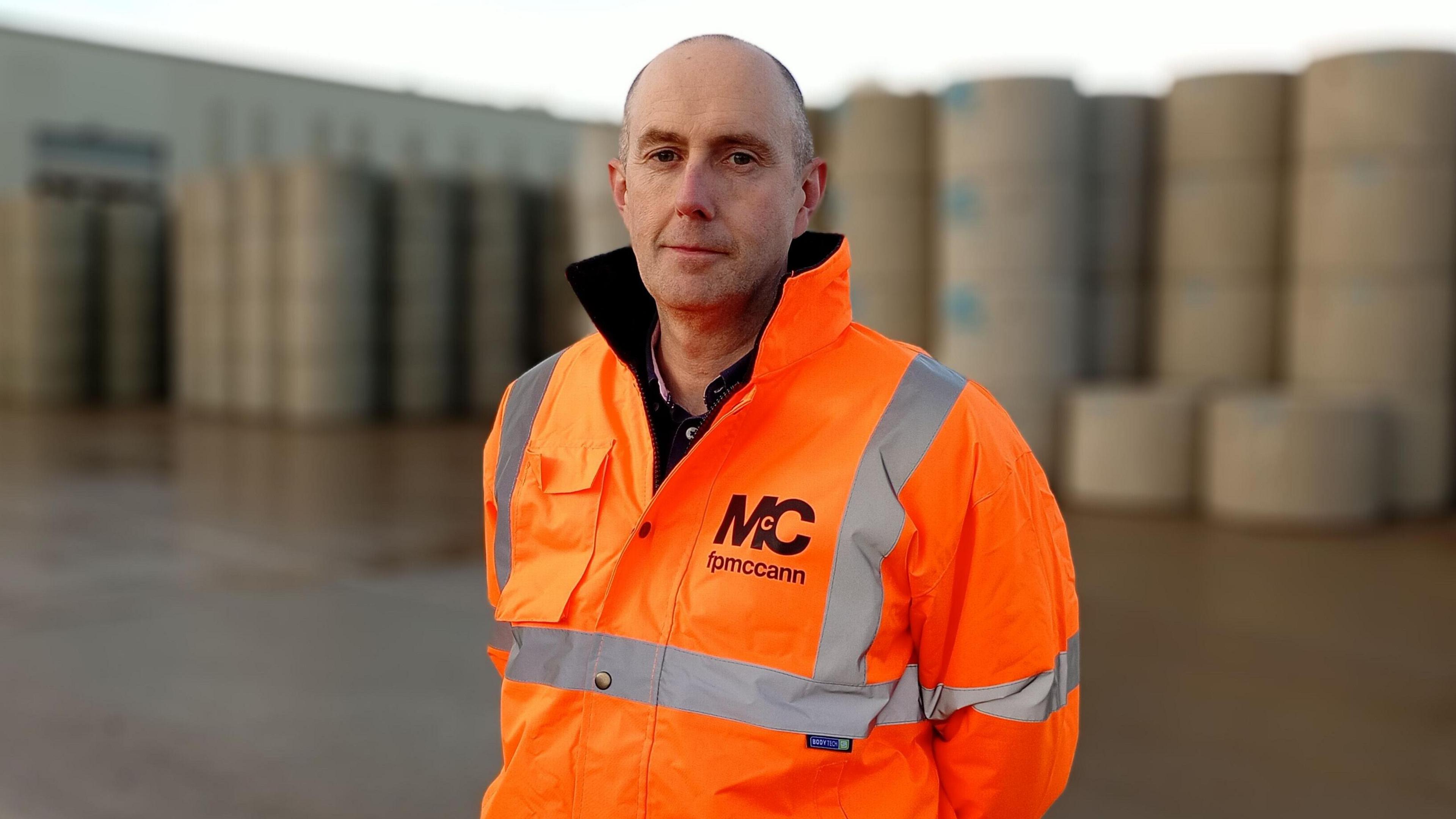
Paul Hamill says the changes will probably be "most prominent" for rural companies
Concrete manufacturing is a significant industry in Northern Ireland and also a high-intensity energy user.
Many companies like FP McCann are trying to reduce their carbon footprint by installing renewable technology and moving to electricity where possible.
But the connection charge can run to millions of pounds, which can slow the move to greener production for some businesses or even put them off.
At the plant in Knockloughrim near Magherafelt, Estates Manager Paul Hamill said the difference the change in connection charging will make is "probably most prominent" for companies operating in a rural setting.
"We're away from centres and the main grid infrastructure, so it takes that financial burden away from us to a large extent."
'Welcome boost'
The hope is the change will stimulate interest in moving to greener, lower emission technologies, as well as making Northern Ireland more attractive to businesses.
Brian Donaldson, chair of the Confederation of British Industry (NI), said it was a "welcome boost" for business confidence.

'Now is the time to look at Northern Ireland,' according to Brian Donaldson
"If you want to invest in solar, you want to invest in heat pumps, or if you want to invest in building more plant, more capacity in your business, you're going to need more electricity," he said.
"So this is a good signal that now is the time to look at Northern Ireland."
He added that the move puts Northern Ireland on "a level playing field" with its closest neighbours.
"This is going to be very welcome news certainly for the transition to a greener, lower carbon emissions future."
The change is expected to take effect in the first half of 2026.
- Published21 September
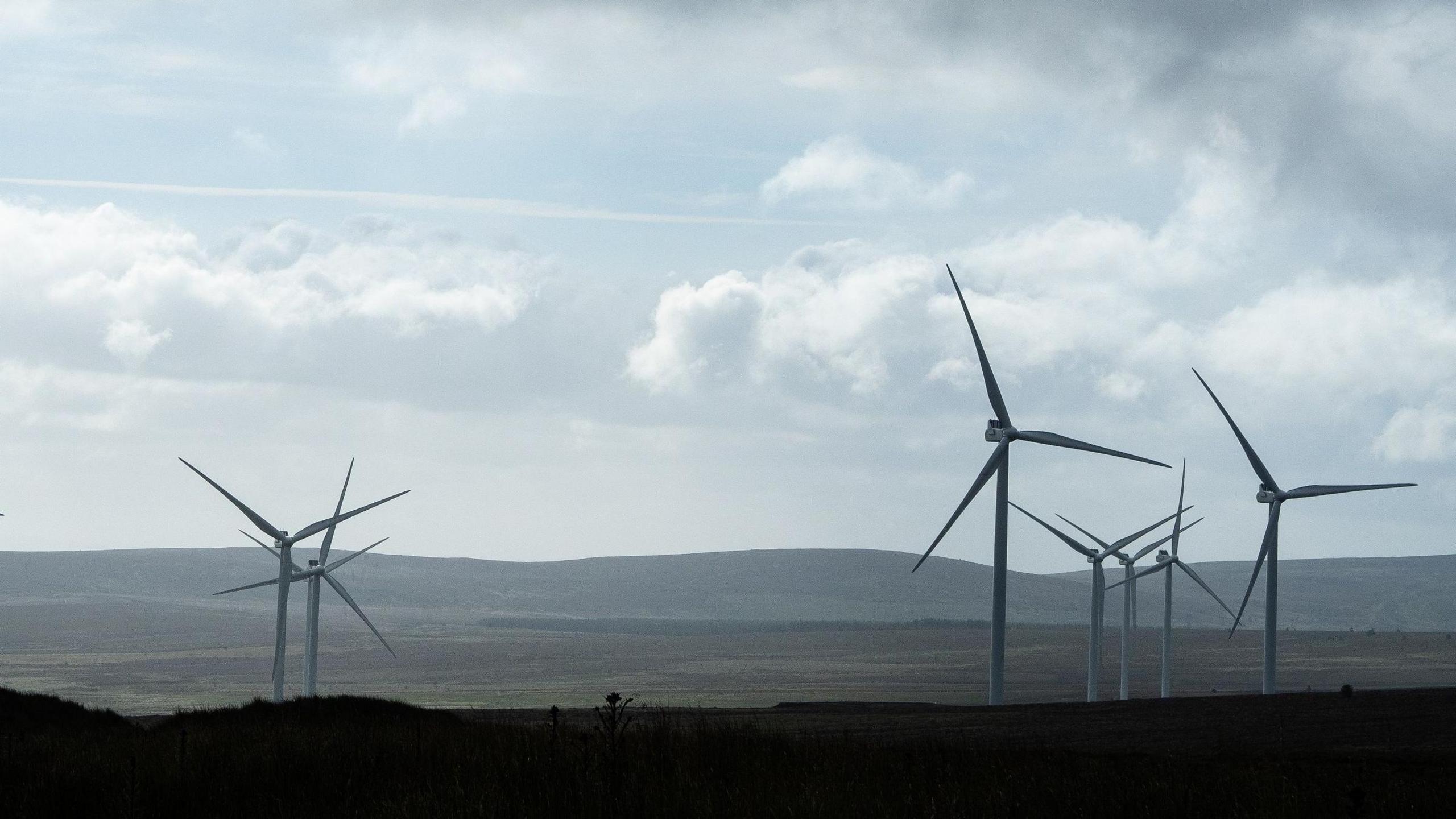
- Published29 November 2024
